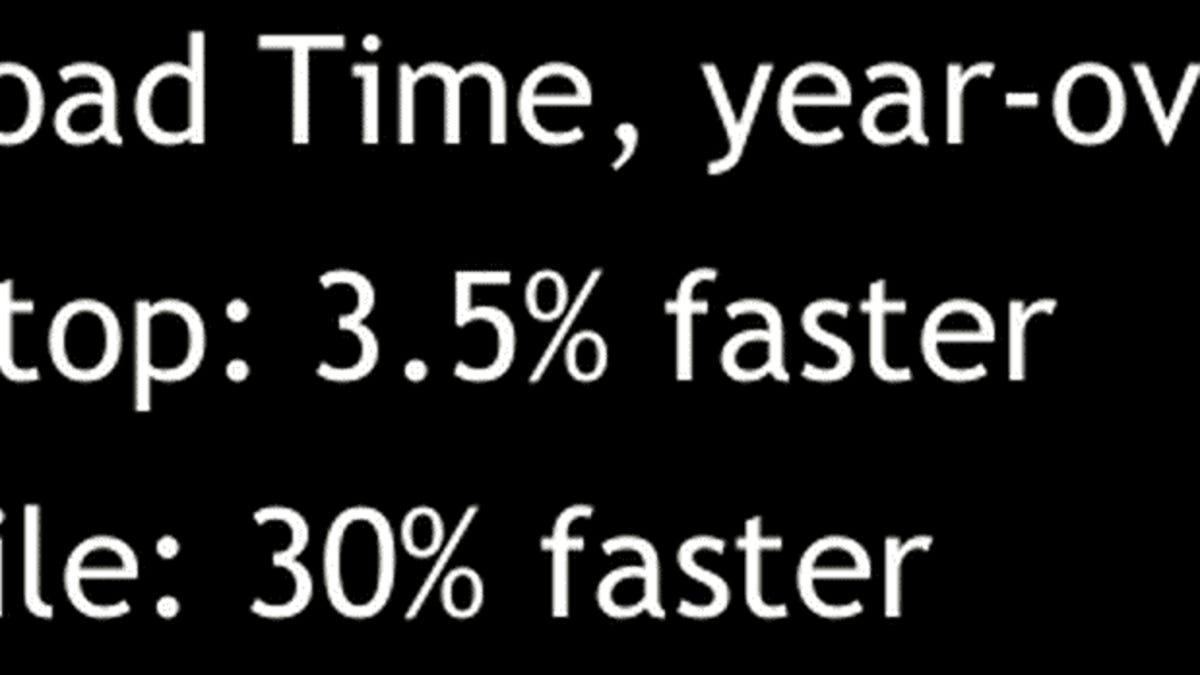Google: Mobile Web sites 30% faster this year
Pages load much faster on smartphones and tablets now compared to last year, as measured by the Google Analytics service.

Performance improvements over the last year mean Web pages measured by the Google Analytics service load significantly faster for people using mobile devices.
The pages load 30 percent faster for mobile browsers now than they did a year ago, Steve Souders, Google's head performance engineer, said in a presentation earlier. And for desktop browser users, the pages load 3.5 percent faster.
Mobile Web performance -- often impaired by big Web pages, slower networks, and limited processors -- can be irritating. The slower a Web page responds, the less people use it, and that's a problem for a company like Google that relies on Web activity for its profits.
Network speeds are steadily improving for broadband and wireless connections, but that's not the top factor in improving Web performance, Souders said in an assessment of the overall state of Web speed. "In my opinion browser improvements are the biggest contributor to a faster web," Souders said in the blog post Thursday.
The news comes a few days ahead of Google I/O, the company's conference for developers concerned with matters such as Web performance.
A host of factors affect page-load speed, including network speed, Web server software, Web site design, and browsers. Google is trying to coax the industry to improve all these domains; faster performance means more usage of the Web, and more usage of the Web historically has meant more search activity and therefore revenue for Google.
In his blog post, Souders said Web pages are getting bigger, which of course slows page-load speeds, and that Web developers aren't using best practices for a fast Web.
"Overall, Web pages are faster now than they were a year ago. I think browser vendors deserve most of the credit for this speed improvement," he said.
Updated 11:25 a.m. PT to note that the speed improvement was for all sites measured with Google Analytics, not just Google's sites.

